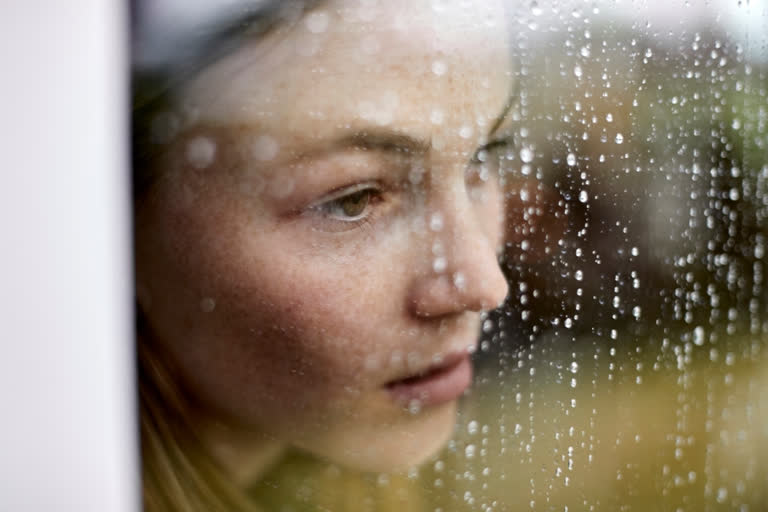Frequent changes in weather and a lack of exposure to sunlight for a long time may develop a feeling of sadness or negativity in us. This problem affects people even in the monsoon season. Actually, it is a type of anxiety that one feels under the category of Seasonal Affective Disorder (SAD). It is also commonly known as the 'Monsoon Blues'.
After a hot summer, many people eagerly wait for the monsoon. Be it romance or leisure, all are usually associated with the monsoon. Even in Hindi films, rain is associated with romance. However, when it rains constantly and the skies are covered with clouds, people start feeling sad and stressed out.
Seasonal Affective Disorder can happen even in Winters.
Experts believe that the weather not only affects our behaviour but also our health. Sunlight or sun rays are very important for our body. But in monsoon or winter, if a person is not exposed to direct sunlight for a long time, their physical and mental health can be greatly affected. Seasonal Affective Disorder is also one of those effects.
According to psychiatrists, when there is no sunlight for a long time, many people may suffer from Monsoon and Winter Blues. In both these states, a person starts feeling depressed, their mood changes very quickly and sometimes they start feeling sad for no reason. Also, other types of mental problems start appearing in the victims of this condition, which affects their behavior, their daily activities, and even their personal and social life.
Causes of the Disorder
According to the National Institute of Mental Health (NIMH), it is a mental disorder that people usually face during the gloomy period of the season. The research results that have come out on this subject so far mainly cite 'Problems in the Hypothalamus', a 'Decrease in Serotonin Neurons' and 'Disturbances in the Circadian Rhythm of our Body' responsible for this disorder. All these three conditions occur due to not being exposed to sunlight.
Actually, the body gets vitamin D from sunlight, the lack of which can affect many functions of the body. Its deficiency also affects the function of a neurotransmitter called serotonin in the brain. This neurotransmitter is also called a mood stabilizer. This neurotransmitter is more active in sunlight. In such a situation, when people do not get sunlight for a long period, in rains or winter, the level of serotonin in the brain can get affected. At the same time, the weather also affects the body's circadian rhythm i.e. Biological Clock. Especially due to lack of sunlight, many habits like sleeping, waking or diet can be affected.
What are the Symptoms?
According to NIMH, Seasonal Affective Disorder affects people in different patterns, like 'Monsoon Pattern' and 'Winter Pattern'. Since the root of this disorder is depression, its symptoms are usually similar to the symptoms of depression in all patterns. However, different symptoms can be seen in different people.
Some of the common symptoms of this psychosis are as follows:
- Feeling Sad or Lonely.
- Increased or Decreased Appetite or Weight.
- Sleeplessness or Excessive Sleepiness.
- Not wanting to do any work.
- Feeling Low on Energy.
- Inability to Concentrate.
- Feeling like Crying all the Time.
- Feeling Hopeless, Guilty, or Low in Self-Esteem.
- A Feeling of Uncertainty.
- Disinterest in Physical Relations.
- Distance from Social Life.
- Feeling very Anxious, Irritable or Angry.
- Suicidal thoughts or thoughts of Death in Mind.
How to Handle it:
Dr. Renuka Sharma, a psychologist from Uttarakhand, says that no matter what the season of Seasonal Affective Disorder, it is very important to try to be happy and keep yourself busy in this state. Apart from this, there are some other tips from which the effects of this disorder can be avoided or they can be reduced slightly. Some of which are as follows:
- Spend Time with Your Family and Friends.
- Follow a healthy lifestyle.
- Eat Healthy Food in the Right Amount at the Right Time.
- Incorporate Physical Exercises into Your Routine.
- Listen to Your Favorite Music or Pursue Your Hobby.
- Avoid staying in dark and dimly lit rooms or places, and avoid sitting or staying in such places.



